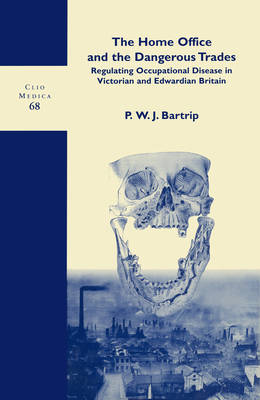
- Afhalen na 1 uur in een winkel met voorraad
- Gratis thuislevering in België vanaf € 30
- Ruim aanbod met 7 miljoen producten
- Afhalen na 1 uur in een winkel met voorraad
- Gratis thuislevering in België vanaf € 30
- Ruim aanbod met 7 miljoen producten
Zoeken
The Home Office and the Dangerous Trades
Regulating Occupational Disease in Victorian and Edwardian Britain
P W J Bartrip
€ 195,45
+ 195 punten
Omschrijving
This book is the first in-depth study of occupational health in nineteenth and early-twentieth century Britain. As such it is an important contribution to the burgeoning literature on the history of health in the workplace. It focuses on the first four diseases to receive bureaucratic and legislative recognition: lead, arsenic and phosphorus poisoning and anthrax. As such it traces the emergence of medical knowledge and growth in public concern about the impact of these diseases in several major industries including pottery manufacture, matchmaking, wool-sorting and the multifarious trades in which arsenic was used as a raw material. It considers the process of state intervention taking due account of the influence of government inspectors, 'moral entrepreneurs' and various interest groups.
Specificaties
Betrokkenen
- Auteur(s):
- Uitgeverij:
Inhoud
- Aantal bladzijden:
- 348
- Taal:
- Engels
- Reeks:
- Reeksnummer:
- nr. 68
Eigenschappen
- Productcode (EAN):
- 9789042012288
- Verschijningsdatum:
- 1/01/2002
- Uitvoering:
- Hardcover
- Formaat:
- Genaaid
- Afmetingen:
- 150 mm x 225 mm
- Gewicht:
- 698 g

Alleen bij Standaard Boekhandel
+ 195 punten op je klantenkaart van Standaard Boekhandel
Beoordelingen
We publiceren alleen reviews die voldoen aan de voorwaarden voor reviews. Bekijk onze voorwaarden voor reviews.











